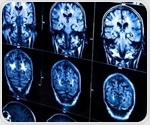
|
|
|
| |

|
|
| |
The latest epilepsy news from News Medical |
|
|
|
| |  | | | EpilepsyGTx, a biotechnology company focused on research and development of cutting-edge gene therapies to treat refractory epilepsy, today announced it has raised $33 million in a Series A financing to advance its lead program EPY201 through Phase 1/2a clinical trials. | | | | |  A new advance from Carnegie Mellon University researchers could reshape how clinicians identify the brain regions responsible for drug-resistant epilepsy. A new advance from Carnegie Mellon University researchers could reshape how clinicians identify the brain regions responsible for drug-resistant epilepsy. | | | | | A multi-institute team led by St. Jude Children's Research Hospital and UT Southwestern Medical Center investigators established for the first time how certain drugs used to treat epilepsy affect their target. | | | | |  To help neurologists, mental health clinicians and other clinicians determine the best ways to help people manage functional seizures, the American Academy of Neurology has issued a new guideline, published on December 10, 2025, in Neurology, the medical journal of the American Academy of Neurology. To help neurologists, mental health clinicians and other clinicians determine the best ways to help people manage functional seizures, the American Academy of Neurology has issued a new guideline, published on December 10, 2025, in Neurology, the medical journal of the American Academy of Neurology. | |
|
|
|
|
|
|
|